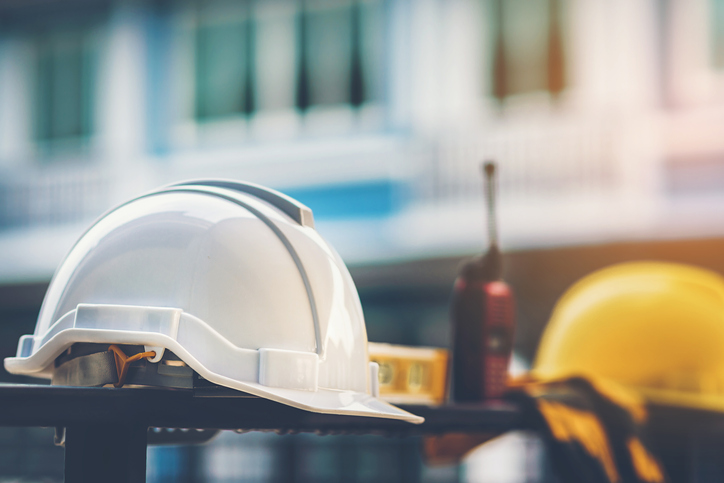As governments and businesses around the world respond to the crisis created by the novel coronavirus, stay-at-home orders around the United States have prohibited many businesses from continuing to operate.
In many areas, dine-in restaurants, clothing retailers, salons, theaters, and many other businesses have been classified as “non-essential” and ordered to shut down. Other types of businesses, including grocery stores, gas stations, and hospitals have remained open even under the strictest stay-at-home orders. These businesses, deemed “essential” are, in many cases, mandated to operate with mitigation measures in place to protect workers.
But construction has fallen into a gray area. Is construction an “essential business” or not? That is the question many regions have been grappling with, and the answers are as varied as the country itself.
Here’s how four regions have handled the issue so far.
New York City Closed Down Most Construction
New York City was hit early and hard by the pandemic. In response, Governor Andrew Cuomo ordered the vast majority of its construction projects to cease operation until further notice.
“We’re closing down nonessential construction sites,” Cuomo said on March 27. “Some construction is essential to keep the place running, but non-essential construction is going to stop.”
Construction categorized as “essential” in NYC, and therefore permitted to continue, has included infrastructure, hospitals, homeless shelters, affordable housing, and emergency repairs. The city’s Department of Buildings launched a map to allow citizens to track which projects continue.
South Florida and Miami-Dade Allowed Most Construction to Continue
When stay at home orders were issued in Florida in late March, a broad swath of businesses and locations were categorized as non-essential and ordered to close. This included beaches, attractions, and other public areas, in addition to certain businesses. The orders were enforced by roadblocks.
Construction, however, was initially categorized as “essential” and allowed to continue unabated. This was a boon for many projects, as the builders no longer had to schedule around business hours or rush hour, leading to many infrastructure and other projects to finish well ahead of schedule.
Not everyone was happy with the broad application of “essential businesses” to apply to all construction projects, however. The head of Century Homebuilders voluntarily closed operations near the beginning of April, and urged lawmakers to make shut-downs mandatory for most construction projects.
While the state has continued to resist broad shut-downs for construction, some municipalities have taken stronger action. The City of Miami Beach shut down several projects because health protocols were not being followed. The City of Surfside and several North Dade municipalities took stronger action, closing most construction sites deemed “non-essential.”
California Categorized Construction As An Essential Business, But Still Halted Much Of It
California’s Governor Newsom issued an executive order on March 22 that categorized construction as an essential business, and exempted it from the state’s stay-at-home order.
However, that didn’t mean construction continued across the state without limitation. California left the definition of “essential” up to counties and cities, and most of them placed restrictions on construction.
For instance, Alameda, Contra Costa, Marin, San Francisco, San Mateo, and Santa Clara Counties as well as the City of Berkeley strictly limited which construction projects were considered “essential” within their limits. For these seven municipalities, only construction projects that meet these criteria have been permitted to continue:
- Immediately necessary to the maintenance, operation, or repair of essential infrastructure
- Associated with healthcare operations, so long as it’s related to response to COVID-19
- Affordable housing
- Essential public works
- Shelters and temporary housing, excluding hotels and motels
- Critical services to the homeless
- Residential and buildings for essential businesses necessary to maintain in safe, sanitary, and habitable condition
Michigan Shut Down Most Construction After Initial Confusion
Michigan became the center of debate about the best response to COVID-19 after Governor Whitmer issued one of the nation’s most restrictive stay-at-home orders, sparking protests that were widely covered in the news.
Michigan’s stay-at-home order initially provided exemptions to construction work if the project was “necessary to sustain or protect life.” Later, the order was further clarified to define essential construction as those necessary to “maintain and improve essential public works like roads, bridges, the telecommunications infrastructure, and public health infrastructure,” as well as those necessary to “maintain and improve the safety, sanitation, and essential operations of residences.”
Michigan and many other areas have also included specific guidance for keeping essential construction workers safe while at work, though such guidance is not universal.
Contractors in all parts of the country are encouraged to review orders from their state, region, county, and city for guidance on what is permitted and what is not permitted. We also encourage all active construction projects to take safety precautions to mitigate the risk of COVID-19 outbreaks on the job site.
Additionally, if your project has been put on hold due to COVID-19, it’s important that you review your contract for liquidated damages clauses as well as “acts of God” clauses and communicate with your clients to ensure everyone understands who will be responsible for the costs of delays caused by Coronavirus shut-downs.
If you would like help reviewing your construction contract, renegotiating terms, or understanding your responsibilities, contact GLE today and speak with one of our expert construction consultants.



